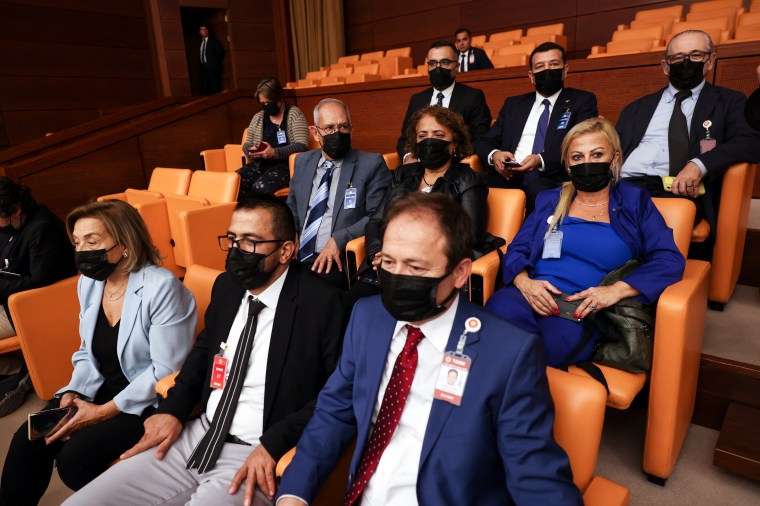Istanbul, October 5, 2022—The Turkish parliament should not approve the draft bill on misinformation that would criminalize spreading “false information,” the Committee to Protect Journalists said Wednesday.
Turkey’s parliament, known as the Grand National Assembly, started discussing the draft bill on Tuesday evening and is set to finish voting this week, according to multiple news reports and tweets from an official account. The bill includes amendments to press and internet laws and the penal code and, if approved, will criminalize the act of “spreading false information,” according to those reports.
“Turkish parliamentarians are about to vote on a dangerous bill that, if approved, will hinder freedom of the press and speech, not only for members of the media but of Turkish society who may have opinions that authorities disagree with. Criminalizing the spreading of so-called false information under such vague terms is plain censorship no matter what you call it,” said Gulnoza Said, CPJ’s Europe and Central Asia program coordinator, in New York. “While this law is expected to pass, there is still a chance for Turkish parliamentarians to reverse course and prevent this historical step backward for the country’s democracy and protect press and speech freedoms.”
Lawmakers already voted on and passed the first two articles of the 40-article bill, reports said. The first 28 articles of the bill introduce a new category for online journalists who are not currently recognized as members of the media by Turkey’s Press Law; Article 29 updates the penal code. The bill was introduced by the governing Justice and Development Party (AKP) and its ally, the Nationalist Movement Party (MHP), in May, and was approved by a parliamentary commission by June before being considered by the Grand National Assembly this week.
The AKP and MHP, which control the necessary majority in the legislature, plan to approve all articles by Friday, the reports said. If passed, the bill will go into effect if President Recep Tayyip Erdoğan signs it within 15 days.
If the penal code change is approved, those found guilty of publicly spreading false information to cause concern, fear, or panic would face sentences of one to three years in prison, and the penalty would increase for offenders who hide their identity or act on behalf of a criminal group, but what constituted misleading information or who would make that determination was not clear, according to CPJ’s review of the bill.
The bill’s authors wrote in the introduction that the change to the penal code is designed to protect Turkish citizens’ rights online while combating “disinformation” and “illegal content” produced by “false names and accounts”; they argued that this action falls in line with regulations in the United States and European countries, such as Germany, France, and the United Kingdom.
The bill also expands restrictions on social media first passed in 2020; that law requires social media platforms with over one million users to open local offices and assign local representatives. Under the bill, a representative of a social media platform will be required to reside in Turkey, which would allow the Turkish authorities to prosecute them if they choose. The proposed amendments also provide more detail of existing obligations of social media companies and make it easier for Turkish authorities to remove content from the internet.
In recent months, local press freedom groups have protested the proposed law, describing it as “the heaviest censorship in the history of the press” that would “suffocate” journalism in Turkey.
CPJ emailed the Turkish president’s office and Grand National Assembly for comment but did not immediately receive a response.
